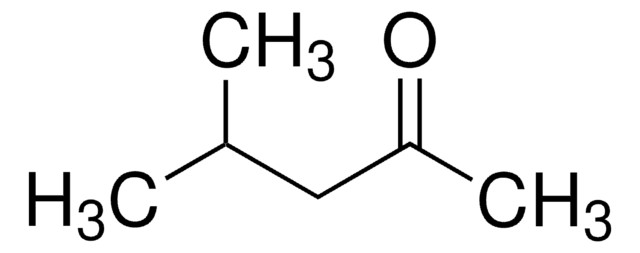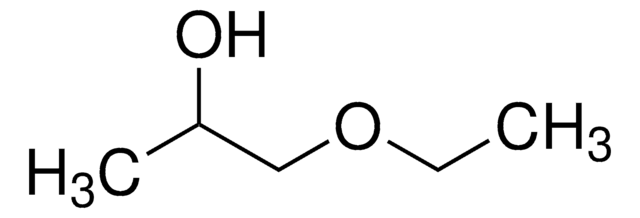About This Item
Recommended Products
vapor density
3.5 (vs air)
Quality Level
vapor pressure
25 mmHg ( 20 °C)
Assay
≥99.5%
form
liquid
autoignition temp.
842 °F
expl. lim.
1.7 %, 37 °F
8 %
impurities
≤0.01% Acetic acid (free acid)
≤0.1% Water
evapn. residue
≤0.01%
color
APHA: ≤15
refractive index
n20/D 1.384 (lit.)
bp
102 °C (lit.)
mp
−95 °C (lit.)
density
0.888 g/mL at 25 °C (lit.)
SMILES string
CCCOC(C)=O
InChI
1S/C5H10O2/c1-3-4-7-5(2)6/h3-4H2,1-2H3
InChI key
YKYONYBAUNKHLG-UHFFFAOYSA-N
Looking for similar products? Visit Product Comparison Guide
Related Categories
General description
Application
Signal Word
Danger
Hazard Statements
Precautionary Statements
Hazard Classifications
Eye Irrit. 2 - Flam. Liq. 2 - STOT SE 3
Target Organs
Central nervous system
Supplementary Hazards
Storage Class Code
3 - Flammable liquids
WGK
WGK 1
Flash Point(F)
53.2 °F - closed cup
Flash Point(C)
11.8 °C - closed cup
Certificates of Analysis (COA)
Search for Certificates of Analysis (COA) by entering the products Lot/Batch Number. Lot and Batch Numbers can be found on a product’s label following the words ‘Lot’ or ‘Batch’.
Already Own This Product?
Find documentation for the products that you have recently purchased in the Document Library.
Customers Also Viewed
Geranyl acetate synthesis by lipase-catalyzed transesterification in supercritical carbon dioxide.
Our team of scientists has experience in all areas of research including Life Science, Material Science, Chemical Synthesis, Chromatography, Analytical and many others.
Contact Technical Service








